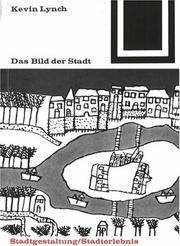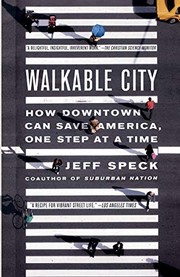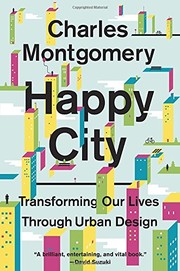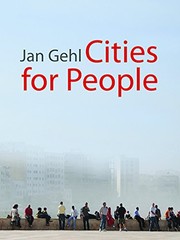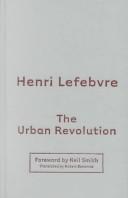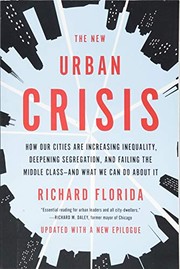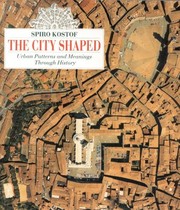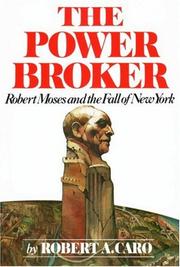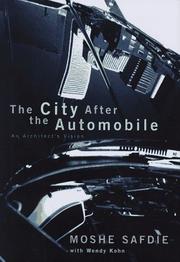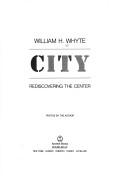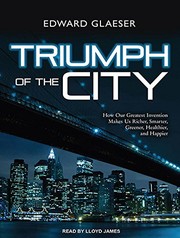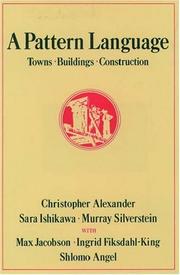Are you fascinated by the intricate art of city planning? Do you want to delve deeper into the world of urban design and development? Look no further! We’ve curated a list of the 20 best books about city planning that will enlighten and inspire you. Whether you’re a professional urban designer or simply a curious reader, these books on city planning are sure to captivate and educate you on the complexities of building and shaping the cities we live in.
Contents
- 1 20 Best Books About City Planning
- 2 The Death and Life of Great American Cities
- 3 The Image of the City
- 4 Walkable City: How Downtown Can Save America, One Step at a Time
- 5 The City in History: Its Origins, Its Transformations, and Its Prospects
- 6 Happy City: Transforming Our Lives Through Urban Design
- 7 The Well-Tempered City: What Modern Science, Ancient Civilizations, and Human Nature Teach Us About the Future of Urban Life
- 8 Cities for People
- 9 The Urban Revolution
- 10 The New Urban Crisis: How Our Cities Are Increasing Inequality, Deepening Segregation, and Failing the Middle Class—and What We Can Do About It
- 11 The City Shaped: Urban Patterns and Meanings Through History
- 12 The Power Broker: Robert Moses and the Fall of New York
- 13 The Option of Urbanism: Investing in a New American Dream
- 14 The City of Tomorrow: Sensors, Networks, Hackers, and the Future of Urban Life
- 15 The Smartest Places on Earth: Why Rustbelts Are the Emerging Hotspots of Global Innovation
- 16 The City After the Automobile: An Architect’s Vision
- 17 City: Rediscovering the Center
- 18 Triumph of the City: How Our Greatest Invention Makes Us Richer, Smarter, Greener, Healthier, and Happier
- 19 A Pattern Language: Towns, Buildings, Construction
- 20 The Urban Sketching Handbook: Architecture and Cityscapes: Tips and Techniques for Drawing on Location
- 21 The Art of City Sketching: A Field Manual
- 22 Conclusion
- 23
- 24 Books about Hell: 2024's Best Titles
- 25 Being In Prison Books: 2024's Collection of 20 Must-Reads
- 26 The Human Mind Books: A Curated 2024 Updated List
20 Best Books About City Planning
The Death and Life of Great American Cities
by Jane Jacobs
The Death and Life of Great American Cities by Jane Jacobs is a groundbreaking book on city planning that challenges conventional wisdom about urban development. Jacobs argues that diverse and vibrant neighborhoods are the key to successful cities, and she offers a scathing critique of the city planning practices of the 1950s. She advocates for mixed-use development, pedestrian-friendly streets, and a bottom-up approach to urban renewal. Her keen observations and compelling arguments have made this book about city planning a classic in the field. Jacobs’s writing is both insightful and accessible, making it essential reading for anyone interested in the future of our cities.
The Image of the City
by Kevin Lynch
The Image of the City by Kevin Lynch is a seminal book about city planning that revolutionized the way we perceive and understand urban environments. Lynch explores how people mentally organize and navigate cities, uncovering the elements that make certain places memorable and others forgettable. Through extensive research and engaging storytelling, he introduces the concept of “imageability” and identifies five key elements—paths, edges, districts, nodes, and landmarks—that shape our perception of a city. With its insightful analysis and practical insights, this city planning book has become a classic in the field, influencing generations of urban planners, architects, and designers. Whether you’re a professional in the field or simply curious about the dynamics of urban spaces, The Image of the City offers a fascinating journey into the art and science of urban design.
Walkable City: How Downtown Can Save America, One Step at a Time
by Jeff Speck
Walkable City: How Downtown Can Save America, One Step at a Time by Jeff Speck is a groundbreaking book on city planning that explores the importance of walkability in urban areas. Speck argues that creating pedestrian-friendly environments is key to revitalizing cities and improving the quality of life for residents. Through engaging prose and insightful analysis, he presents a compelling case for rethinking urban design and transportation policies. Speck’s book offers practical solutions and inspiring examples of successful urban transformations, making it a must-read for anyone interested in creating more livable and sustainable cities. Whether you’re a city planner, architect, or simply a concerned citizen, this thought-provoking book about city planning will leave you with a new perspective on the potential of walkable urban spaces.
The City in History: Its Origins, Its Transformations, and Its Prospects
by Lewis Mumford
The City in History, written by Lewis Mumford, is a seminal book on urban development and the evolution of cities. This comprehensive book about city planning explores the origins, transformations, and future prospects of urban centers. Mumford delves into the social, cultural, and technological forces that have shaped cities throughout history, offering a rich tapestry of insights into the complex nature of urban life. The book provides a thought-provoking analysis of the impact of architecture, infrastructure, and governance on the development of cities, making it essential reading for anyone interested in understanding the dynamics of urban environments. With its engaging prose and meticulous research, The City in History remains an indispensable resource for urban planners, architects, historians, and anyone curious about the book on city planning.
Happy City: Transforming Our Lives Through Urban Design
by Charles Montgomery
Happy City: Transforming Our Lives Through Urban Design by Charles Montgomery is a compelling exploration of the intersection between urban design and human happiness. In this enlightening book on city planning, Montgomery delves into the ways in which the design of our cities profoundly impacts our well-being, social connections, and overall satisfaction with life. Through engaging storytelling and thought-provoking research, the author demonstrates how urban environments can either foster or hinder happiness, and offers innovative solutions for creating more joyful and fulfilling cities. Whether you’re a city planner, architect, or simply someone interested in creating better communities, this book about city planning offers valuable insights and inspiration for transforming our urban landscapes into happier, healthier, and more vibrant places to live.
The Well-Tempered City: What Modern Science, Ancient Civilizations, and Human Nature Teach Us About the Future of Urban Life
by Jonathan F. P. Rose
The Well-Tempered City by Jonathan F. P. Rose is a fascinating exploration of urban life that draws on modern science, ancient civilizations, and human nature to provide insights into the future of cities. This thought-provoking book delves into the complex interplay between urban design, social equity, and environmental sustainability, offering a holistic perspective on city planning. Jonathan F. P. Rose’s in-depth analysis and engaging storytelling shed light on the challenges and opportunities facing modern cities, making this a must-read for anyone interested in the future of urban life. Whether you’re a city planner, architect, or simply a concerned citizen, The Well-Tempered City offers valuable lessons and inspiration for creating thriving, resilient, and harmonious urban environments.
Cities for People
by Jan Gehl
Cities for People by Jan Gehl is a captivating book on urban design and the importance of putting people at the center of city planning. Gehl, a renowned architect and urban designer, provides a thought-provoking overview of how cities can be transformed into vibrant, livable spaces by prioritizing human experiences over cars and buildings. The book explores the relationship between urban design and human behavior, emphasizing the need for pedestrian-friendly environments, public spaces, and sustainable transportation. Gehl’s insightful observations and case studies from cities around the world make this book a valuable resource for anyone interested in creating more people-centric urban spaces. Whether you’re a city planner, architect, or simply someone who cares about the future of our cities, this book about city planning is a must-read.
The Urban Revolution
by Henri Lefebvre
The Urban Revolution, written by Henri Lefebvre, is a groundbreaking book on city planning that delves into the transformation of urban spaces. Lefebvre explores the societal and cultural changes that accompany the rise of urbanization, challenging traditional views of urban development. He examines the power dynamics at play in the creation of urban environments and the impact of these spaces on the lives of citizens. Lefebvre’s thought-provoking analysis offers a fresh perspective on the complexities of urban life and the ways in which cities are designed and experienced. This book about city planning invites readers to reconsider their understanding of urban landscapes and the forces that shape them, making it a must-read for anyone interested in city planning or urban studies.
The New Urban Crisis: How Our Cities Are Increasing Inequality, Deepening Segregation, and Failing the Middle Class—and What We Can Do About It
by Richard Florida
The New Urban Crisis by Richard Florida is a thought-provoking book about the challenges facing modern cities. Florida delves into the issues of increasing inequality, deepening segregation, and the failure of the middle class within urban areas. Drawing on his expertise in urban studies, he offers a comprehensive analysis of the complex factors contributing to these problems, from the rise of the creative class to the housing affordability crisis. However, Florida doesn’t just dwell on the negatives; he also proposes actionable solutions to address these urban challenges. With its insightful commentary and practical recommendations, this book is a must-read for anyone interested in understanding and improving the dynamics of urban areas. Whether you’re a city planning enthusiast or simply curious about the future of our cities, The New Urban Crisis offers valuable insights into the pressing issues of urban development.
The City Shaped: Urban Patterns and Meanings Through History
by Spiro Kostof
The City Shaped by Spiro Kostof is a captivating exploration of urban patterns and meanings throughout history. This thought-provoking book on city planning delves into the evolution of cities, examining how they have been shaped by cultural, social, and economic forces. Kostof’s insightful analysis takes readers on a journey through time, from ancient civilizations to modern metropolises, highlighting the diverse influences that have contributed to the development of urban landscapes. With engaging narratives and rich illustrations, this book about city planning offers a comprehensive understanding of the complexities of urban design and the significance of spatial organization. Whether you’re an urban enthusiast or simply curious about the history and development of cities, The City Shaped is an enlightening and informative read that will broaden your perspective on the built environment.
The Power Broker: Robert Moses and the Fall of New York
by Robert A. Caro
The Power Broker: Robert Moses and the Fall of New York by Robert A. Caro is a monumental book on city planning that delves into the life and career of Robert Moses, a man who wielded unparalleled power in shaping the landscape of New York City. Caro meticulously examines Moses’ influence on the city’s infrastructure, parks, and highways, revealing how his decisions had far-reaching and often detrimental effects on marginalized communities. This book about city planning is a gripping portrait of a man who held immense authority without being held accountable, and it serves as a cautionary tale about the unchecked power of urban planners. Through extensive research and compelling storytelling, Caro paints a vivid picture of Moses’ rise and eventual fall, offering invaluable insights into the complexities of city planning and governance.
The Option of Urbanism: Investing in a New American Dream
by Christopher B. Leinberger
The Option of Urbanism: Investing in a New American Dream by Christopher B. Leinberger is a compelling book on city planning that explores the shift towards urban living in America. Leinberger presents a persuasive argument for investing in vibrant, walkable urban communities, highlighting the economic, social, and environmental benefits they offer. Through engaging storytelling and insightful analysis, the author challenges the traditional suburban development model and advocates for a new approach to city planning. Leinberger’s vision for the future is both practical and inspiring, offering a roadmap for creating livable, sustainable cities that prioritize people over cars. This book about city planning is a must-read for anyone interested in the future of urban development and the potential for a new American dream.
The City of Tomorrow: Sensors, Networks, Hackers, and the Future of Urban Life
by Carlo Ratti and Matthew Claudel
The City of Tomorrow: Sensors, Networks, Hackers, and the Future of Urban Life, co-authored by Carlo Ratti and Matthew Claudel, offers a fascinating exploration of the intersection between technology and urban development. This insightful book on city planning delves into the ways in which sensors, networks, and hackers are reshaping the future of our cities, offering innovative solutions to urban challenges.
Ratti and Claudel provide a thought-provoking analysis of how technology is transforming urban life, and how it can be harnessed to create more sustainable, efficient, and livable cities. Through engaging storytelling and compelling examples, they present a compelling vision of the city of tomorrow, where data-driven insights and collaborative networks drive positive change. Whether you’re a city planning enthusiast or simply curious about the future of urban life, this book about city planning is sure to inspire and inform.
The Smartest Places on Earth: Why Rustbelts Are the Emerging Hotspots of Global Innovation
by Antoine van Agtmael and Fred Bakker
The Smartest Places on Earth: Why Rustbelts Are the Emerging Hotspots of Global Innovation, written by Antoine van Agtmael and Fred Bakker, explores the transformation of former industrial regions into hubs of innovation and entrepreneurship. This insightful book delves into the resurgence of once-declining Rustbelt cities, showcasing how they have reinvented themselves as centers of technological advancement and economic growth. Through in-depth research and compelling case studies, the authors highlight the factors that have contributed to the revitalization of these areas, including investment in education, infrastructure, and collaboration between government, businesses, and academic institutions. The Smartest Places on Earth is a must-read for anyone interested in urban development, economic revitalization, and the potential for innovation in unexpected places. This book about city planning offers valuable insights into the power of resilience and reinvention in the face of economic decline.
The City After the Automobile: An Architect’s Vision
by Moshe Safdie
The City After the Automobile: An Architect’s Vision by Moshe Safdie is a thought-provoking book about city planning that presents a compelling vision for the future of urban environments. Safdie, a renowned architect, offers a fresh perspective on how cities can evolve beyond their dependence on automobiles, emphasizing the need for sustainable, human-centric design. In this book on city planning, Safdie explores innovative solutions for transportation, public spaces, and community integration, aiming to create vibrant, livable cities for the 21st century. With his expertise and passion for urban development, Safdie presents a compelling case for reimagining our cities and embracing a new era of design and functionality. The City After the Automobile is an essential read for anyone interested in the future of urban living and the potential for positive change in our cities.
City: Rediscovering the Center
by William H. Whyte
City: Rediscovering the Center by William H. Whyte is an insightful book on city planning that delves into the dynamics of urban spaces and the importance of vibrant city centers. Through engaging narratives and thorough research, Whyte explores the intricate relationships between people, architecture, and public spaces, offering valuable insights for urban planners, architects, and anyone interested in the vitality of urban environments. The book about city planning emphasizes the significance of pedestrian-friendly streets, interactive public spaces, and the human-scale design in creating thriving city centers. With a keen eye for detail and a deep understanding of urban dynamics, Whyte provides a compelling case for the revitalization of city centers, making this city planning book a must-read for anyone passionate about creating vibrant and livable urban spaces.
Triumph of the City: How Our Greatest Invention Makes Us Richer, Smarter, Greener, Healthier, and Happier
by Edward Glaeser
Triumph of the City by Edward Glaeser is a captivating book on city planning that explores the transformative power of urban environments. Glaeser, a renowned economist, delves into the ways in which cities have shaped human civilization and continue to impact our lives in profound ways. He argues that cities are hubs of innovation, economic prosperity, and cultural exchange, and that their dense, interconnected nature fosters creativity and problem-solving. Glaeser also examines the environmental and social benefits of urban living, making a compelling case for the sustainability and health advantages of city life. Through engaging storytelling and thorough research, Triumph of the City offers a fresh perspective on the significance of urban centers and their potential to enrich our lives in countless ways. Whether you’re interested in urban development or simply curious about the impact of cities on society, this city planning book is a must-read.
A Pattern Language: Towns, Buildings, Construction
by Christopher Alexander
A Pattern Language: Towns, Buildings, Construction by Christopher Alexander is a groundbreaking book on city planning that offers a unique approach to designing and constructing communities. The book provides a comprehensive set of 253 patterns that cover everything from the layout of a town to the design of individual buildings. Each pattern is a solution to a specific problem in the built environment, and together they form a language for creating livable, sustainable, and beautiful spaces. Alexander’s approach emphasizes the importance of human-scale design, community engagement, and the creation of spaces that foster human interaction and well-being. This book about city planning is a must-read for architects, urban planners, and anyone interested in creating more vibrant and inclusive communities.
The Urban Sketching Handbook: Architecture and Cityscapes: Tips and Techniques for Drawing on Location
by Gabriel Campanario
The Urban Sketching Handbook: Architecture and Cityscapes is a must-have for any urban sketcher or architecture enthusiast. Written by Gabriel Campanario, this book offers a comprehensive guide to capturing the essence of cityscapes and architectural details through sketching. With insightful tips and techniques, Campanario provides practical advice on how to observe and interpret urban environments, and how to translate them into captivating sketches. Whether you’re a beginner or a seasoned artist, this book will inspire you to explore the urban landscape and improve your sketching skills. Filled with beautiful illustrations and helpful guidance, The Urban Sketching Handbook: Architecture and Cityscapes is an essential addition to any artist’s library, providing valuable insights into the art of capturing city life on paper.
The Art of City Sketching: A Field Manual
by Michael Abrams
The Art of City Sketching: A Field Manual by Michael Abrams is a captivating book about city planning that takes readers on a visual journey through urban landscapes. With detailed illustrations and insightful commentary, this book provides a comprehensive guide to understanding the built environment and the art of capturing it through sketching. Readers will gain a deeper appreciation for the intricate details of cityscapes and learn valuable techniques for sketching architecture, streetscapes, and urban scenes. Whether you’re an aspiring artist, an urban planner, or simply a lover of cities, this city planning book offers a unique perspective on the beauty and complexity of urban design. Abrams’ expertise and passion for city planning shine through in this visually stunning and informative manual.
Conclusion
City Planning is a fascinating and complex field that requires a deep understanding of urban development and design. The 20 best books about city planning provide valuable insights into the history, theory, and practice of creating livable and sustainable cities. Whether you’re a professional urban planner or simply interested in the topic, these books offer a wealth of knowledge and inspiration. From classics like “The Death and Life of Great American Cities” by Jane Jacobs to contemporary works like “Walkable City” by Jeff Speck, there’s something for everyone looking to delve into the world of urban development. Happy reading and happy planning!
Which City Planning book is best?
The best book on City Planning can vary with personal preference, but three widely recommended titles are:
- The Death and Life of Great American Cities by Jane Jacobs,
- The Image of the City by Kevin Lynch,
- Walkable City: How Downtown Can Save America, One Step at a Time by Jeff Speck.
Each offers valuable insights and could be a great starting point.
What are the best books to learn about City Planning?
For those looking to learn about City Planning, there is a wealth of literature that can provide a comprehensive understanding of the subject. Some of the most highly recommended books include:
- The Death and Life of Great American Cities by Jane Jacobs,
- The Image of the City by Kevin Lynch,
- Walkable City: How Downtown Can Save America, One Step at a Time by Jeff Speck,
- The City in History: Its Origins, Its Transformations, and Its Prospects by Lewis Mumford,
- Happy City: Transforming Our Lives Through Urban Design by Charles Montgomery,
- The Well-Tempered City: What Modern Science, Ancient Civilizations, and Human Nature Teach Us About the Future of Urban Life by Jonathan F. P. Rose,
- Cities for People by Jan Gehl,
- The Urban Revolution by Henri Lefebvre,
- The New Urban Crisis: How Our Cities Are Increasing Inequality, Deepening Segregation, and Failing the Middle Class—and What We Can Do About It by Richard Florida,
- The City Shaped: Urban Patterns and Meanings Through History by Spiro Kostof
These books offer a range of perspectives on City Planning, covering various aspects and approaches to the subject.
What are the best books on City Planning?
The best books on City Planning include:
- The Death and Life of Great American Cities by Jane Jacobs,
- The Image of the City by Kevin Lynch,
- The Power Broker: Robert Moses and the Fall of New York by Robert A. Caro,
- The Option of Urbanism: Investing in a New American Dream by Christopher B. Leinberger,
- The Urban Revolution by Henri Lefebvre,
- The Well-Tempered City: What Modern Science, Ancient Civilizations, and Human Nature Teach Us About the Future of Urban Life by Jonathan F. P. Rose.
Each offers unique insights into the subject. While these books on the topic of City Planning are highly regarded, it’s important to note that any list of ‘best’ books is subjective and reflects a range of opinions.
What are the best City Planning books of all time?
Choosing the best City Planning books of all time can vary depending on who you ask, but seven titles that are often celebrated include
- The Death and Life of Great American Cities by Jane Jacobs,
- The Image of the City by Kevin Lynch,
- Happy City: Transforming Our Lives Through Urban Design by Charles Montgomery,
- The Urban Revolution by Henri Lefebvre,
- The City Shaped: Urban Patterns and Meanings Through History by Spiro Kostof,
- The Option of Urbanism: Investing in a New American Dream by Christopher B. Leinberger,
- and The Power Broker: Robert Moses and the Fall of New York by Robert A. Caro.
Each of these books has made a significant impact in the field of City Planning and continues to be influential today.


